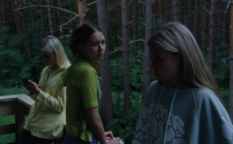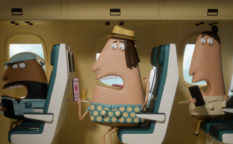Review: Space Dogs (2019)
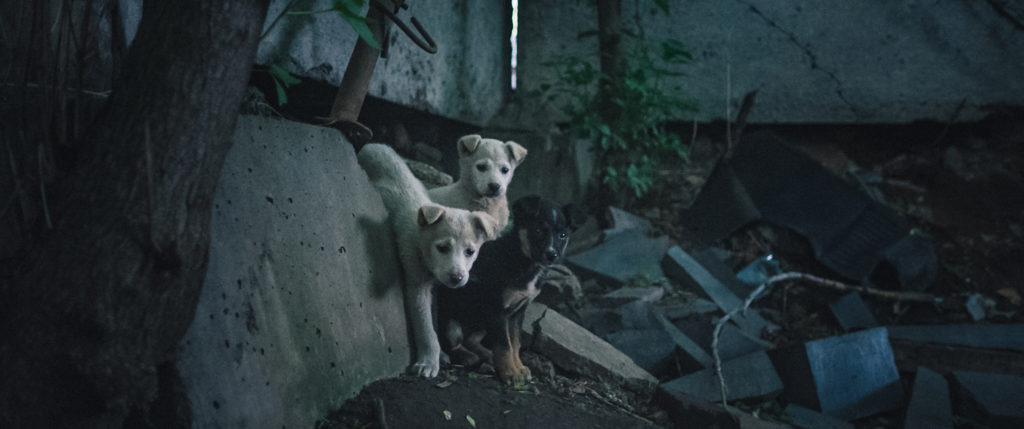
Little, if anything at all was known until some 18 years ago, about the actual destiny of the first space dog, Laika. She did not actually orbit the Earth, because she died of overheating shortly after rocket was launched and that there was no intention of those involved in space program for her to survive. She served her purpose for the Soviets to construct the myth of the first dog in space around her. What is actually known about her is that she was a street dog living in Moscow and that she became an icon of sorts.
Laika herself is not the subject of the Austrian-German documentary Space Dogs, written and directed by Elsa Kremser and Levin Peter, a film that sharply divided the critics over its festival course that started last year at Locarno. The film, however, starts with yet another myth of her, artificially constructed in the Soviet times. According to the myth, Laika’s ghost is still alive and prowling the streets of Moscow. Space Dogs merely takes it as a starting point, taking, for the two thirds of the time, the point of the aforementioned sprit, following two of the Moscow mutts which are taken as the successors of Laika, spiritual if not genetic.
The very perspective is the key here, and it makes Space Dogs bold piece of cinema that is, at times, extremely hard to watch. It is a portrait of city dog’s life, where car wrecks are equally good toilet options and shelters from the rain, where the humans are represented only by their legs that are something menacing and ready to kick, where nights are rainy and the visitors of karaoke bars are singing crappy pop-folk music completely out of tune. One of the scenes is especially disturbing, and it involves as cat unfortunate enough to encounter the dogs. What happens then is something that most of the humanity does not want to think about, but it is what it is in a cruel world.
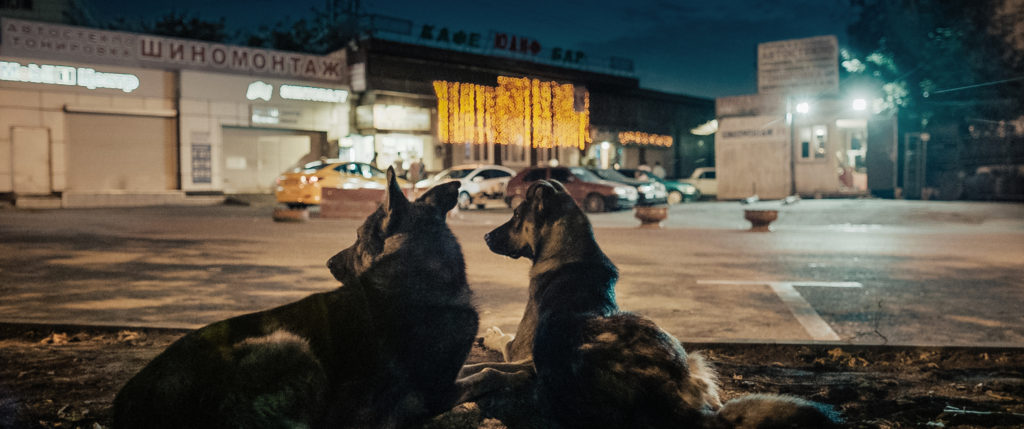
© Elsa Kramser 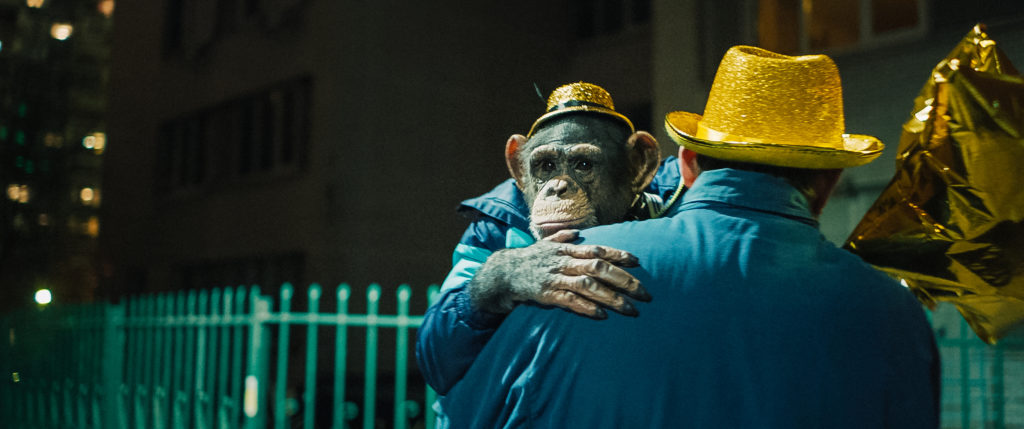
© Elsa Kremser
When it comes to cruelty, a completely new level of it can be read from the excerpts of the rarely seen material from the Soviet archives that deals with animals in space and the experiments conducted on them on the Earth. The space monkey from the American TV show might be a piece of common knowledge, but the treatment of the space animals going to the point that some of them that, unlike Laika, survived their trip to the orbit, were mated and their puppies were given away as a trophy.
The archival material is interwoven with the newly recorded, but the manner of connecting it is rarely intuitive and smooth, so in the end it seems like a mash-up of two different films. The narration done by Aleksey Serebryakov (of Cargo 200 and Leviathan fame) does not help much, regardless of his velvet timbre and the bravado in reciting the lines in the manner of the Thespian reciting Pushkin’s verses. The error here is not technical (the editing by Stephan Bechinger and Jan Soldat is fine here), but conceptual: the link between the two stories here in the form of narration is neither very strong, nor elastic enough.
Finally, Space Dogs is, as a whole, less than it would be as the sum of its parts that would better work separately, but it is still brave, challenging and on more than one occasion, emotionally disturbing piece that is, as always, less about dogs and more about humans, whether they are wearing white coats, or their presence is reduced only to legs ready to kick.
Original title: Space Dogs
Year: 2019
Country: Austria, Germany
Language: Russian
Runtime: 93′
Directed by: Elsa Kremser, Levin Peter
Written by: Elsa Kremser, Levin Peter
Cinematography by: Yunus Roy Imer
Editing by: Stephan Bechinger, Jan Soldat
Sound design by: Jonathan Schorr
Music by: John Gürtler, Jan Miserre
Assistant directors: Fedor Gerlein, Artem Moskalev
Produced by: Elsa Kremser, Levin Peter
Co-produced by: Annekatrin Hendel
Service producers: Yuliya Mishkinene, Mariana Morgovskaia
Production companies: Raumzeitfilm Produktion, It Works Medien GmbH, Vita Aktiva














